PART IV
What does politics look like in a world in which there aren’t viable nation-states or the nation-states that do exist are suffused with conflicts?
Up to this point, we have examined types of nation-state identities–liberalism, fascism, and Leninism–that are fairly easy to pin down. But, what does one do with the many countries that don’t fall easily under these rubrics? Americans frequently lob all of the countries (and problematic countries) into a category called the “Third World.” The problem with a grab-all concept like “Third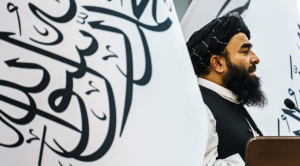 World” is that it obscures the many, many different civilizations that do not lend themselves to easy generalization. After all, it doesn’t make sense–and it simply won’t work–to put countries like Chile and Argentina in the same box as Sudan and Afghanistan.
World” is that it obscures the many, many different civilizations that do not lend themselves to easy generalization. After all, it doesn’t make sense–and it simply won’t work–to put countries like Chile and Argentina in the same box as Sudan and Afghanistan.
The same problems also arise with the new term that has been invented to resolve this confusion: the Global South. True, there are (I think) more so-called developing countries to the South of the Equator. Nonetheless, in terms of categorization, it’s not clear to me how a concept like “the Global South” helps us to understand highly industrialized, advanced democracies like Australia and New Zealand, and again Chile and Argentina?
My solution to this problem is to narrow our focus by concentrating on a specific category of states that have one thing in common: a relatively recent encounter with European colonization This approach has a notable benefit. Many of the major crises in the world today are at least partly due to the experience of a specific period of world history that began in the second half of the 19th century and, for most, ended by the 1960s. These countries include Afghanistan. The country’s most takeover by fanatics is one of the greatest, ongoing tragedies of our day. Afghanistan cannot be understood unless one studies its colonial past.
My focus on the consequences of European colonialism relates directly to my continuing story about the formation of nation-states. In this section of the course, we will look at states that are struggling with the challenge of building nation-states. Some of them are not even states; they are, like Afghanistan, not only failed democracies but failed states.
29. LECTURE: Monday, November 6
A comparison of two ideal types: tradition and modernity.
Today’s Assumption: People in the West frequently denigrate the cultures of the inhabitants of traditional societies. Yet, the norms and institutions of traditional societies are as rational as those of modern society. They are simply based upon different cognitions and values. Personally, I find some of the attributes of traditional societies to be superior to those of modern societies. For that matter, traditional attitudes are engrained in the brick and mortar of Notre Dame.
A good example of liberal democracy’s problem with the expression of traditional ways of acting is the French practice of laicité In France, people are prohibited from wearing conspicuously religious garb (e.g., crucifixes) in public institutions, such as schools.
Angelique Chrisafis, “France’s Headscarf Rule,” The Guardian,” July 2013 READ
Part of the Western tendency to denigrate other peoples and cultures is due to our hubristic conception of our place in history. Remember Weber’s point about how our “Protestant” predecessors regarded themselves as saved by God.
In the eyes of many people in developing countries, we have legalized forms of corruption. Consider the relationship between powerful lobbies and political campaigns. Or, in an example that affects the fortunes of Notre Dame athletics, consider the some universities’ exploitation of Name/Image/Likeness opportunities to pay for the services of “amateur” athletes.
On the positive side, we can also benefit by following the some of the practices of traditional societies and cultures. Here is an article about how a traditional society’s emphasis on the value of “dependence” could provide a valuable antidote to the dysfunctional consequences of America’s cultivation of the myth of “heroic individualism” Alissa Quart, “Can We put an End to America’s Most Dangerous Myth,” PRINT AND READ
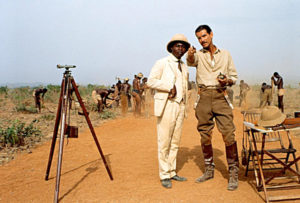
REQUIRED FILM: Please watch the wonderful film, “Mister Johnson.”. Go to our on-line Hesburgh Reserves site
As you watch the film, think about how the protagonist, Mister Johnson, is caught between two worlds and then crushed by the contradictions of this relationship. What are the defining differences between these worlds, and in the case of Nigeria, the domestic contradictions of modern and traditional norms?
As you watch film, look for the following themes:
-
-
- The nature of the British colonial “project,” and especially its political characteristics.
- The earmarks of a “traditional” society. In particular, how do traditional ways of looking at the world contrast with modern ways?
- The sources of conflict between the values of a traditional society and those of a Western (or modern) society. The film is literally about the conflict between modern and traditional values and perceptions.
- Look for what happens when someone is caught between these worlds—the essence of tragedy.
- Finally, ask yourself what insight this film provides into many of the conflicts between modernity and tradition in the world today, especially in South Asia, Africa, and the Middle-East.
-
30. LECTURE: Wednesday, November 8
Reflections on the brutally tragic characteristics of European colonial empires.
Look closely at the historical evolution of western colonial empires on this fascination map of the globe.
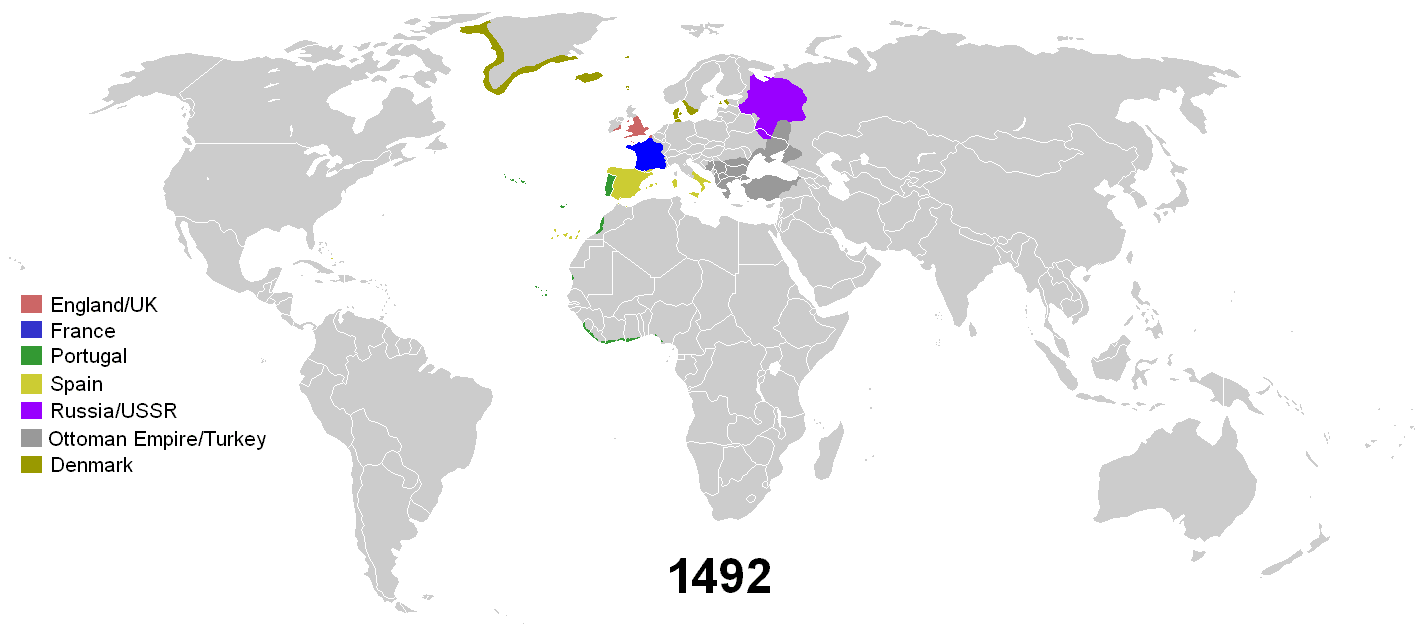
Today’s Assumption: In this lecture, I will focus on colonialism’s role as an external instrument of change. Whether we are talking about the realization of Napoleon’s imperial ambitions in Europe or Europe’s colonial conquest of most of Africa and Asia one century later or US colonial ambitions in the early 20th century, the intrusion of these western powers repeatedly challenged the stability and integrity of other peoples and cultures. Well after these powers left, as we shall see, their impact has continued to be felt. The tragedy of Afghanistan, which I shall discuss today, is a tragedy of colonization. Britain, the Soviet Union, and the United States have learned that you can’t control a country that isn’t a nation-state.
Read these articles to get a sense for the roots of the tragedy of Afghanistan:
Stephen Tanner, “Indomitable Afghanistan: Why the country remains unconquered” READ
Carter Malkesian,”What America didn’t understand about its longest war,” Politico, July 6, 2021 READ.
31. Discussion Section: Friday, November 10
Today’s subject: is the film “Mister Johnson.” The two-fold goal of this session is to discuss: 1) the differences between traditional norms, values, and social organization and those of modern societies; and 2) the impact of western colonialism on traditional societies.
Paragraph assignment: “Could Mister Johnson’s tragic fate have been averted?”
For the upcoming visit by Mary Kate Battle on Wednesday (see below) and the following discussion section on Friday, read Carolina Maria de Jesus’s incredible book, Child of the Dark. This autobiography is a moving testament to the reality of the life of the poor.
32. LECTURE: Monday, November 13
Reflections on the sensible logic of peasant society.
Today’s Assumption: There are more peasants in the world than any other social group. The organization of peasant societies makes more sense than we might imagine. It relies upon a conception of reality known as the “limited good.” The “limited good” is neither good nor bad. It is simple one way of looking at the world.
Assignment: Read George Foster’s seminal article and the newspaper piece below and ask yourself what the advantages and disadvantages of an ideal-typical peasant society would be. Look for the main points.
In reading Foster’s challenging article (from which I have included excerpts), keep in mind that his style of argumentation bears all of the earmarks of western condescension toward traditional societies. Still, there is a lot of truth to his argument. Also, his conclusions can be read in a way that is not condescending at all. One way to counter the western bias is to identify ways in which a “limited good” mentality is present in our own society. For example, consider the competitive behavior of high school students aspiring to get into the best universities.
George Foster: “Peasant society and the image of the limited good” PRINT AND READ
Sara Sidner, “Brothers share wife to secure family land” READ
On the rational logic behind primogeniture: READ
Then, read about the massive migration of peasants from the land into the cities, a quintessential example of the conflict between traditional and modern societies.
Eugene Linden, “The exploding cities of the developing world,” Jan-Feb;75(1), 1996: 52-65. Search through Hesburgh Library On-line journals and PRINT and READ
US citizens migrate too!
And why not encourage all kinds of people to migrate permanently to South Bend? We now have a labor shortage in the US. Economists agree that the availability of labor is essential for economic growth. We could bring desperately needed labor resources to our region. And, it will certainly help my home value.
D’Vera Cohn, “About a fifth of U.S. adults moved due to COVID-19 or know someone who did,” Pew Research Center, July 6, 2020 READ
33. CLASS VISIT: Wednesday, November 15
A conversation about Poverty, Hope, and Service with Mary Kate Battle (ND ’10) of Catholic Relief Services (and yet another survivor of World Politics). Mary Kate is a member of the inaugural class of our Alumni Association’s Domer Dozen: WATCH
Mary Kate will talk about the challenges of combating poverty and violence in her work with Catholic Relief Services and CRS’s approach to the Catholic concept of Integral Human Development. She will also share some reflections on her current work on helping children who are separated from their families and getting them into safe family environments.
Mary Kate has requested that you read the following material in preparation for her remarks.
She will also refer to Carolina Maria de Jesus’s Child of the Dark. Read as much of the book as you can by this date.
Other required readings:
Vaclav Havel, “Never Hope against Hope” PRINT AND READ
Catholic Relief Services, “Integral Human Development Framework” ACQUAINT YOURSELF WITH THE TOPIC (This link may require a Chrome Extension. I don’t know what that is, so please let me know asap if it doesn’t work)
Catholic Relief Services, “Changing the Way we Care” READ
34. DISCUSSION SECTION: Friday, November 17.
Topic: What does it mean to be poor? And what does this have to do with us?
Carolina Maria de Jesus, Child of the Dark. Be prepared to discuss the entire book. This is gripping, provocative, and sobering reading. De Jesus’s story is painfully revealing. As you read it, try to imagine what you would do if you found yourself in her shoes. Keep in mind that Carolina Maria was a living, breathing human being, just like you; she had nothing–often not even food in her stomach–and she somehow managed to write this incredible diary.
As we near Thanksgiving, this book is also deeply relevant to understanding the meaning of gratitude.
As you reflect on how lucky we are, consider this question: What responsibility should Roman Catholics have toward the poor? (You definitely do not need to belong to the Church to ask this question). Read what Leonardo Boff, a key proponent of “liberation theology,” has to say about this issue: READ
Paragraph assignment: Can Notre Dame be a truly Catholic institution and not practice liberation theology? What would it mean to practice liberation theology? Interestingly, the founding father of liberation theology, Gustavo Gutiérrez, teaches at Notre Dame! See HERE
35. LECTURE: Monday, November 20
Reflections on the global problem of poverty and its implications for human life, society, and politics.
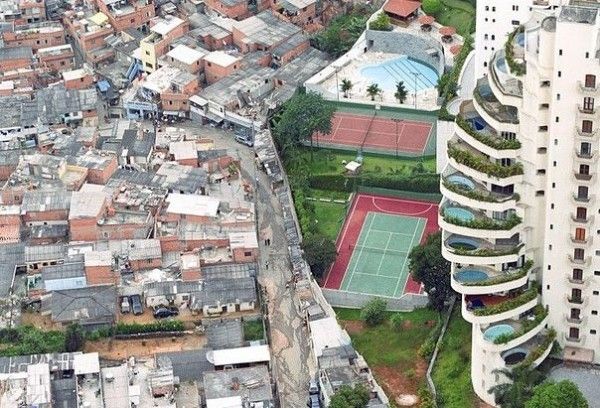
Today’s Assumption: Being poor is a way of life for most people in the world. No student at the University of Notre Dame should be indifferent to the plight of the poor, especially while living on one of the most conspicuously affluent campuses in the world! In addition, poverty is not only a problem for other peoples. It is a problem for Americans as well because it is deeply embedded in our society, indeed arguably to a much greater extent than in any other modern industrial democracy.
Readings:
In my lecture, I will refer to parts of Carolina Maria de Jesus’s Child of the Dark.
Additionally, please read the following:
Ana Swanson, “You might be among the richest people in the world and not realize it” Washington Post READ
Gapminder: Look HERE for some of some very cool sources of information about international inequality. Gapminder is akin to an interactive game designed to take you through every imaginable type of data (e.g., live births, literacy rates, income) that is relevant to comparisons between the developed and developing world. For some of the topics, you can even manipulate the information over time, going back hundreds of years.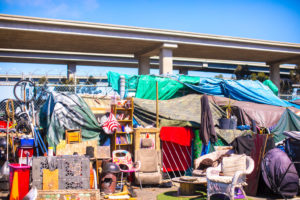
The US has shantytowns, too. Many are are the result of domestic migration and homelessness. Cities like Oakland and San Francisco are overwhelmed by the internal movement of citizens from one location to another.
Optional but highly Recommended: Eve Bratman, “Development’s Paradox: is Washington DC a Third World city?” HERE (Hesburgh on-line) A superb and provocative article. There are interesting similarities between poverty in the US and poverty in less-developed economies. However, it’s important to ask whether the causes are the same. I think the US is a special case. Other advanced, industrialized democracies have far less engrained poverty than the US. How would you explain this disparity?
THANKSGIVING BREAK: November 22-26.
Reading Assignment for Thanksgiving. This short video puts our American Thanksgiving in perspective. The story is provocative. And the narrator’s last two sentences are perfect
35. LECTURE: Monday, November 27
An exceedingly popular solution to the problems of weak or non-existent nation-states: Big men with big guns, big appetites, and big mouths, who tell you they can solve big problems.
Today’s Assumption: Western policymakers frequently rationalize life under dictatorial regimes (e.g., Saudi Arabia) as a political, economic, and military necessity. But cozying up to dictators is risky. Can we confidently say that we are the best judges of necessity, especially when we are talking about the quality of other people’s lives? We sometimes forget or ignore the tragic fact that ordinary people must live under these regimes.
Read at least the first two sections of this report, Freedom House, “Global Expansion of Authoritarian Rule”
As you read about the proliferation of these regimes, ask yourself the following questions: 1) What is the nature of the authoritarian personality? 2) Why would people support such leaders? 3) For that matter, why would people in liberal-democracies willingly sacrifice some of their values to follow authoritarian personalities?
Katherine Fung, “Chinese President Warned Biden Democracy is Dying,” Newsweek, May 27, 2022 READ
Let us consider the appeal of authoritarian solutions:
Robert Kagan, “The Strongmen Strike Back, Washington Post, March 14, 2019 PRINT AND READ
The authoritarian temptation can be found in all kinds of settings, even in advanced democracies. One of the great mysteries for me is why people who benefit so much from liberal democracy would want to exchange it for something else. Can you replace liberal democracy with a form of government that doesn’t have its shortcomings while at the same time preserving what you like about it. Consider Kagan’s statement here
” . . .many people focus on liberalism’s shortcomings, the things it does not provide and the things it either weakens or destroys. The thing liberalism does provide — security of the individual’s rights against the state and the community — is easily taken for granted or devalued.”
One of the most common features that authoritarian leaders share is extreme narcissistic personality disorder. In this right conditions, these personality characteristics actually attract people and convince them that they need some a “special” person to lead them. Read about this disorder HERE
Ask yourself whether you have ever encountered such a person. I have. I also study them. This particular pathology sounds quite unattractive. So, why are people attracted to such individuals again and again?
A related reason why people support authoritarian rulers is that the latter have “charisma.” But what is charisma anyway? And is it a good thing when people seem to have it?
Patricia Sellers, “What exactly is charisma?” READ
